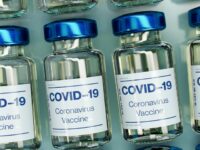With the COVID Delta variant surging throughout Florida and the rest of the U.S., there has been a lot of talk about breakthrough infections. Breakthrough infections are COVID infections that can occur even after you are vaccinated.
Although 90% of those hospitalized with COVID in recent months are unvaccinated, that still means that a small percentage of vaccinated people have been sick enough to require hospitalization. There also are those who have gotten sick but were not sick enough to require hospitalization.
Even though breakthrough infections have happened in some people who are vaccinated, the Centers for Disease Control and Prevention still recommends getting a COVID vaccine. Here are some common questions you may have about breakthrough infections from COVID.
Why should I get vaccinated if I still could get sick?
By getting vaccinated, you shield yourself to the best extent possible from getting severely ill or dying from COVID. Although you can still get sick, you will likely not get as sick as you would without the vaccine. Plus, your chances of requiring a hospital stay are much lower.
What are my chances of getting a breakthrough infection if I am vaccinated?
Your chances are 0.05% according to two studies, although research in this area is still ongoing. Some factors that raise your risk for a breakthrough infection:
- You get a variant of COVID-19. The vaccines are still effective against variants, but variants like Delta still spread much more quickly than “traditional” COVID.
- You are immunocompromised.
- You received the vaccine incorrectly.
What are the symptoms of a breakthrough infection?
Symptoms of a breakthrough COVID infection include:
- Upper respiratory symptoms such as a runny nose or cough
- Headache
- Fatigue
- A low-grade fever
- It’s also possible that you won’t have any symptoms.
Can I spread COVID to others if I have a breakthrough infection?
Yes. This is one reason why wearing masks is still important. For instance, you may have a breakthrough infection but no symptoms and spread it to others, particularly those who are unvaccinated.
What should I do if I think I have a breakthrough infection?
- Ask yourself if the symptoms you have are typical for you. For instance, is it the time of year when you usually experience allergies and you have a runny nose? Be suspicious if the symptoms are not in your usual wheelhouse.
- Get tested. This is especially important if you have symptoms that are unusual for you, you’ve recently traveled, and/or you know that you have been around someone who tested positive for COVID. Here is information on where to get tested for COVID in Manatee County.
- If you test positive, stay home for 10 days. If you have severe symptoms, seek urgent medical help. Otherwise, plan a telehealth visit with your doctor. Your doctor can provide further guidance regarding the amount of time to quarantine.
Call Secure Aging to Find Out How We Can Help Seniors With Care Management
At Secure Aging in Bradenton, we transform the weight of the world into a sigh of relief for our senior clients and their concerned family members. The mission of Secure Aging is to protect and preserve our client’s independence and dignity through careful and thoughtful financial and care management. As our clients age, it is their desire to remain independent and age with dignity. Our services protect our clients from talented con artists looking to exploit and deplete the financial resources of our vulnerable seniors. Secure Aging helps families in Manatee County and Sarasota County and in and around the communities of Anna Maria, Bradenton, Bradenton Beach, Ellenton, Holmes Beach, Lakewood Ranch, Longboat Key, Myakka City, Palmetto, Parrish, and Sarasota. Call us at 941-761-9338, or visit us online at www.secureaging.com.




Comments are closed